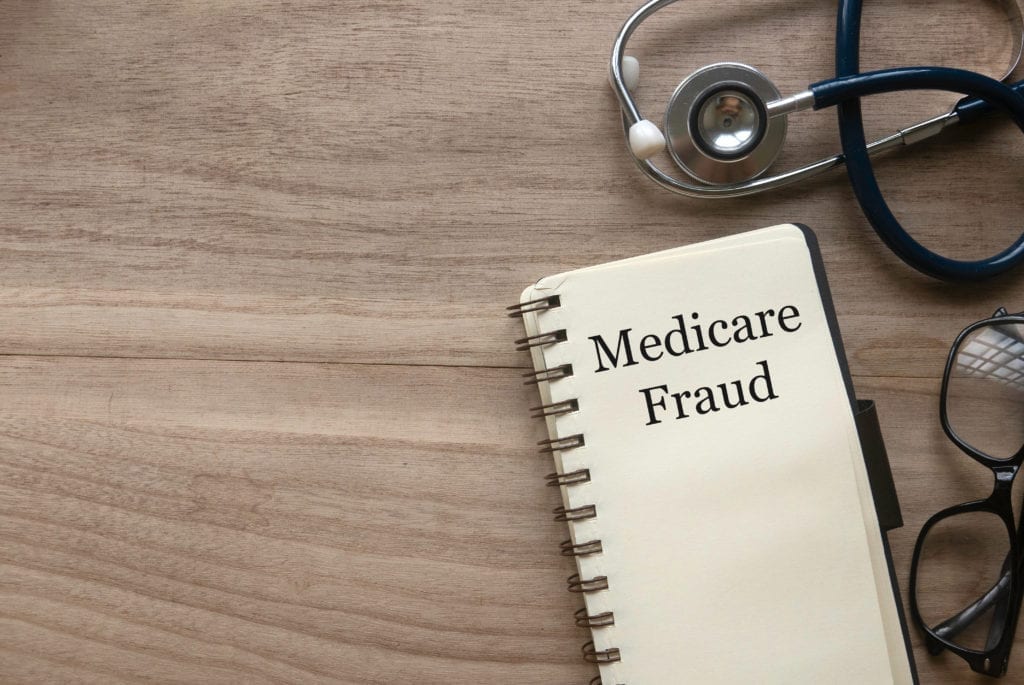Brian J Graber LLC is an Illinois hospital whistleblower lawyer representing medical employees retaliated against in violation of Illinois and federal law. Many Illinois and federal hospital whistleblower laws will protect medical employees from retaliation and wrongful termination. Effective on January 1, 2004, Illinois passed the Hospital Report Card Act, 210 ILCS 86/1, et seq., which contains whistleblower protections for hospital employees. However, because the Whistleblower Protections of the Hospital Report Card Act is so watered down, the Illinois Whistleblower Act, 740 ILCS 174/1, et seq., is a better hospital whistleblower law for medical employees suffering workplace retaliation.
Hospital Report Card Act – Whistleblower Protections
The Hospital Report Card Act, 210 ILCS 86/10, defines “hospital” for the purposes of this Act as a health care facility licensed under the Hospital Licensing Act.

Under 210 ILCS 86/10 “retaliate” means to discipline, discharge, suspend, demote, harass, deny employment or promotion, lay off, or take any other adverse action against direct-care nursing staff as a result of that nursing staff taking any action described in this Act.
Statutory Protected Activity
Under 210 ILCS 86/35(a) a hospital covered by this Act shall not penalize, discriminate, or retaliate in any manner against an employee with respect to compensation or terms, conditions, or privileges of employment who in good faith, individually or in conjunction with another person or person, does any of the following or intimidate, threaten, or punish an employee to prevent him or her from doing any of the following:
- Discloses to the nursing staff supervisor or manager, a private accreditation organization, the nurse’s collective bargaining agent, or a regulatory agency any activity, policy, or practice of a hospital that violates this Act or any other law or rule or that the employee reasonably believes poses a risk to the health, safety, or welfare of a patient or the public.
- Initiates, cooperates, or otherwise participates in an investigation or proceeding brought by a regulatory agency or private accreditation body concerning matters covered by this Act or any other law or rule or that the employee reasonably believes poses a risk to the health, safety, or welfare of a patient or the public.
- Objects to or refuses to participate in any activity, policy, or practice of a hospital that violates this Act or any other law or rule of the Department or that a reasonable person would believe poses a risk of the health, safety, or welfare of a patient or the public. However, 210 ILCS 86/35(b) states that nothing in this Section prohibits a hospital from training, educating, correcting, or otherwise taking action to improve the performance of employees who report that they are unwilling or perform an assigned task.
- Participates in a committee or peer review process or files a report or complaint that discusses allegations of unsafe, dangerous, or potentially dangerous care within the hospital.
No Illinois appellate courts have issued any opinions interpreting the required elements hospital employees need to prove to receive protection for whistleblower activity. It would be reasonable to presume that hospital employees seeking whistleblower protections under this Act would have to prove at a minimum the following elements:
- He/She engaged in one or more of the above-described statutorily protected activities in good faith;
- The decision-maker knew about the hospital employee’s statutory protected activity; and
- The decision-maker took adverse employment action against the hospital employee because of his/her statutory protected activity.
The Act offers broad protections allowing hospital employees to internally report violations to hospital management or report violations to outside third parties like union representatives and private accreditation organizations. However, this hospital whistleblower law seems to favor management.
Whistleblower Protection Requires Hospital Employees To Act In Good Faith
An employee seeking the whistleblower protection described above must act in good faith. Under 210 ILCS 86/35(b) an employee is presumed to act in good faith if the employee reasonably believes that:
- the information reported or disclosed is true; and
- a violation has occurred or may occur.
Under 210 ILCS 86/35(b) an employee is not acting in good faith if the employee’s report or action was based on information that the employee should reasonably know is false or misleading.
Unless an Exception Applies Whistleblower Protection Requires Written Notice of the Violation to a Hospital Manager
In order for a hospital employee to obtain whistleblower protection, 210 ILCS 86/35(b) requires a hospital employee to give written notice to a hospital manager of the activity, policy, practice, or violation that the employee reasonably believes poses a risk to the health of a patient or the public and provides the manager a reasonable opportunity to correct the problem.
210 ILCS 86/35(b) requires the manager to respond in writing to the employee within 7 days acknowledging that the notice was received and provide written notice of any action taken within a reasonable time of receiving the employee’s notice.
Under 210 ILCS 86/35(b) this Notice Requirement shall not apply if the employee is reasonably certain that the activity, policy, practice, or violation:
- is known by one or more hospital managers who have had an opportunity to correct the problem and have not done so;
- involves the commission of a crime; or
- places patient health or safety in severe and immediate danger.
Under 210 ILCS 86/35(b), the Notice Requirement shall not apply if the employee is participating in a survey, investigation, or other activity of a regulatory agency, law enforcement agency, or private accreditation body that was initiated by the employee.
Hospital Employee’s Private Right of Action for Damages
Under 210 ILCS 86/40, any healthcare facility that violates the provisions of 210 ILCS 86/35 may be held liable to the employee affected in an action brought in a court of competent jurisdiction for such legal or equitable relief as may be appropriate to effectuate the purposes of this Act.
If you believe that you have a claim for retaliation in violation of the Hospital Report Card Act – Whistleblower Protections, contact Brian J Graber, LLC, an Illinois hospital whistleblower lawyer at (312) 291-4648 or by email to schedule a free confidential consultation.
Illinois Whistleblower Act
The Illinois Whistleblower Act, (IWA), 740 ILCS 174/1, et seq., as amended effective January 1, 2025, seems to provide the broadest protection to medical employees from retaliation as well as the broadest remedies to medical employees whose rights are violated.
Medical Employers Covered by the Illinois Whistleblower Act
Under 740 ILCS 174/5, the IWA’s whistleblower protections apply to all employees of any hospitals, medical groups, corporations, partnerships, associations, nursing homes, or any other medical entity that has one or more employees in the State of Illinois. Under 740 ILCS 174/5, the IWA’s Whistleblower protections apply to units of local government like county hospitals.
The IWA, 740 ILCS 174/5 defines the term “employee” as a licensed physician who practices his or her profession, in whole or in part, at a hospital, nursing home, clinic, or any medical facility that is a health care facility funded, in whole or in part, by the State.

Protected Activity under the Illinois Whistleblower Act
The IWA, 740 ILCS 174/30 allows medical employees to bring a civil action against their employer if the employer takes any action against the medical employee in violation of 740 ILCS 174/15 or 740 ILCS 174/20. The IWA, Sections 15 and 20 define several types of statutorily protected activity:
(a) An employer may not take retaliatory action against an employee who disloses or threatens to disclose to a public body conducting an investigation, or in a court, an administrative hearing, or any other proceeding initiated by a public body, information related to an activity, policy, or practice of the employer where the employee has a good faith belief that the activity, policy, or practice (i) violates a State or federal law, rule, or regulation or (ii) poses a substantial and specific danager to employees, public health, or safety. .
(b) An employer may not take retaliatory action against an employee for disclosing or threatening to disclose information to a government or law enforcement agency information related to an activity, policy, or practice of the employer, where the employee has a good faith belief that the activity, policy, or practice of the employer (i) violatesd a State or federal law, rule, or regulation or (ii) poses a substantial and specific danger to employees, public health, or safety.
(c) An employer may not take retaliatory action against an employee for disclosing or threatening to disclose to any supervisor, principal officer, board member, or supervisor in an organization that has a contractual relationship with the employer, who makes the employer aware of the disclosure, information related to an activity, policy, or practice of the employer if the employee has a good faith belief that the activity, policy or practice (i) violates a State or federal law, rule, or regulation or (ii) poses a substantial and specific danger to employees, public health, or safety.
Illinois Whistleblower Act, 740 ILCS 174/15(a), (b) & (c) as amended effective January 1, 2025.
An employer may not take retalitory action against an employee for refusing to participate in an activity that the employee has a good faith belief that such participation would result in a violation of a State or federal law, rule, or regulation, including, but not limited to the Freedom of Information Act.
Illinois Whistleblower Act, 740 ILCS 174/20 as amended effective January 1, 2025.
A medical employee who engages in any of the above-described statutorily protected activities may have whistleblower protections under the IWA. The IWA provides broader protection to medical employees and includes adverse employment action short of actual termination. The IWA, 740 ILCS 174/20.1 states:
Any other act or omission not otherwise specifically set forth in this Act, whether within or without the workplace, also constitutes retaliation by an employer under this Act if the act or omission would be materially adverse to a reasonable employee and is because of the employee disclosing or attempting to disclose public corruption or wrongdoing.
740 ILCS 174/20.1
IWA, 740 ILCS 174/20.2 states that an employer may not threaten any employee with any act or omission if that act or omission would constitute retaliation against the employee under this Act.
Medical employees in hospitals likely have protection under 740 ILCS 174/15(c) when internally reporting suspected violations of State or federal law, rule, or regulation to management. The plain language of the IWA, 740 ILCS 174/15(c) supports a cause of action for disclosing suspected unlawful activity to one’s own employer.
However, 740 ILCS 174/15 does not protect employees who simply note the impropriety of conduct with the alleged wrongdoer, as that does not constitute the disclosure of information under the Whistleblower Act. Sweeney v. City of Decatur, 79 N.E.2d 184, 189 (4th Dist. 2017). Therefore, to receive protection under the IWA, 740 ILCS 174/15 medical employees should report the wrongdoer’s suspected unlawful activity to their employer’s management-level employee who has some authority to take action.
An employer cannot adopt any rule, regulation, or policy preventing medical employees from disclosing information to a government or law enforcement agency regarding a violation of a State or federal law, rule, or regulation.
An employer may not make, adopt, or enforce any rule, regulations, or policy preventing an employee from disclosing information to a government or law enforcement agency if the employee has reasonable cause to believe that the information discloses a violation of a State or federal law, rule, or regulation.
Illinois Whistleblower Act, 740 ILCS 174/10

A medical employee obtains whistleblower protection under 740 ILCS 174/20 by refusing to participate in any activity that would result in a violation of a State or federal law, rule, or regulation.
Illinois Whistleblower Act Burden of Proof
Generally, a medical employee civil action for violations of the IWA must prove the following elements:
- The medical employee engaged in one or more of the protected statutory activities listed above;
- The decision-maker knew the medical employee engaged in the protected statutory activity;
- The decision-maker took adverse employment action against the medical employee because of the protected statutory activity.
The IWA provides medical employees with generous remedies for an employer’s unlawful retaliation for whistleblower activities. Click here to learn more about The Illinois Whistleblower Act.
If you believe you were retaliated against in violation of the Illinois Whistleblower Act, contact Brian J Graber LLC, an Illinois hospital whistleblower lawyer, at (312) 291-4648 or by email for a free confidential consultation.
Selected Regulations Pertaining to Hospitals
The Illinois Department of Public Health enforces several regulations for the safety of patients listed in the index to the Illinois Administrative Code. This index contains a number of emergency provisions related to the coronavirus pandemic.
The Illinois Department of Public Health has adopted a number of standards as part of The Illinois Administrative Code by reference. Click here to see the safety standards that were adopted by reference and are now regulations contained in The Illinois Administrative Code. The Illinois Department of Public Health adopted quite a number of private and professional association Standards and federal government publications that now apply as hospital regulations. Violations of these regulations may support a hospital whistleblower claim for retaliation.
The Illinois Department of Public Health has enacted regulations pertaining to Patient Rights the violation of which may support a hospital whistleblower claim for retaliation. There are hospital regulations dealing with staffing levels and nursing services the violation of which may support a hospital whistleblower claim. Refusing hospital management orders to falsify nursing records and reports would likely support a hospital whistleblower claim.
Where to Report Hospital Violations
The Illinois Department of Public Health (IDPH) is the Illinois government agency that regulates hospitals. Click here to learn about how to file a healthcare complaint with the IDPH.
Other Hospital Whistleblower Laws:
Illinois Retaliatory Discharge
Medical employees may have claims for Illinois common law retaliatory discharge if they are terminated in retaliation for internally reporting to management a violation of law or for protecting the health and safety of the public or otherwise refusing an employer’s demand to violate the law. This is also known as a wrongful termination claim.
If you believe you were wrongfully terminated in violation of Illinois common law, contact Brian J Graber LLC, an Illinois hospital whistleblower lawyer at (312) 291-4648 or email to schedule a free confidential consultation.
False Claims Act

Medical employees may have whistleblower protections under the False Claims Act, 31 U.S.C. 3730(h), and the Whistleblower Reward and Protection Act, 740 ILCS 174/4(g) for bringing qui tam claims against their employers or for trying to stop their employer from submitting false or fraudulent claims to the federal or Illinois government. Fraud against the United States and the State of Illinois is rampant in the medical industry.
If you believe you suffered retaliation in violation of the Federal False Claims Act or the Whistleblower Reward and Protection Act, contact Brian J Graber LLC, an Illinois hospital whistleblower lawyer at (312) 291-4648 or by email to schedule a free confidential consultation.
Retaliatory Discharge – Reporting Workplace Violence

Medical employees have protection from being terminated for reporting workplace violence. Click here to learn more about wrongful termination claims for reporting workplace violence. The Illinois Department of Public Health has enacted regulations dealing with Workplace Violence Prevention Programs.
If you believe that you were wrongfully terminated in violation of Illinois common law retaliatory discharge for reporting workplace violence, contact Brian J Graber LLC, an Illinois hospital lawyer, to schedule a free confidential consultation at (312) 291-4648 or by email.
Illinois Human Rights Act – Hostile Work Environment

The Illinois Human Rights Act was amended to provide stronger protections for sexual harassment and racial harassment claims in the workplace. Click here to learn about your Illinois rights to be free from workplace sexual harassment. Click here to learn more about your federal rights to be free from workplace sexual harassment. If you believe that you suffered workplace sexual harassment or retaliation for reporting sexual harassment, contact Brian J Graber LLC, an Illinois hospital whistleblower lawyer, at (312) 291-4648 or by email to schedule a free confidential consultation.
Retaliatory Discharge for Seeking Worker’s Compensation Benefits

Medical employees have protection from being terminated in retaliation for exercising their rights under The Illinois Worker’s Compensation Act. Click here to learn more about Retaliatory Discharge – Workplace Injury. Coronavirus anti-retaliation protections for seeking worker’s compensation benefits may be available. If you believe you were wrongfully terminated for exercising your rights to worker’s compensation benefits, contact Brian J Graber LLC, an Illinois hospital whistleblower lawyer, at (312) 291-4648 or by email for a free confidential consultation.
Public Medical Employee Civil Rights

Medical employees employed by local government entities like county hospitals have federal civil rights. Click here to learn about Public Employee Civil Rights. If you believe you were terminated in violation of your Constitutional civil rights, contact Brian J Graber LLC, an Illinois hospital whistleblower lawyer, at (312) 291-4648 or by email to schedule a free confidential consultation.
Nursing Home Care Act – Whistleblower Protections
Medical Employees employed by long-term care facilities have whistleblower protections under The Illinois Nursing Home Care Act. Click here to learn about the Nursing Home Care Act-Whistleblower Protections. If you believe that you were terminated or otherwise retaliated against in violation of the Illinois Nursing Home Care Act-Whistleblower protections, contact Brian J Graber LLC, at (312) 291-4648 or by email to schedule a free confidential consultation.
Coronavirus Anti-Retaliation Protections

Medical employees may have certain coronavirus anti-retaliation protections. Click here to learn about coronavirus anti-retaliation protections.
Contact Brian J Graber LLC, an Illinois hospital whistleblower lawyer, at (312) 291-4648 for a free consultation to see if you have a claim against your medical employer for retaliation in violation of hospital whistleblower laws.
